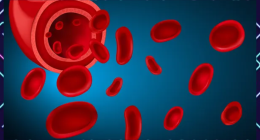How to Handle a Bathroom Emergency With Crohn’s Disease – Judy Hoffstein had a moment that was “like seeing the Emerald City” while out with friends one night in Manhattan. It wasn’t a celebrity spotting or some other “only in New York!” occurrence. Rather, Hoffstein was truly shocked when she (finally!) stumbled upon a public restroom in a subway station. (If you’ve ever had to poop while running around NYC or another major city, you know how big of a deal this is.)
She was especially relieved because Hoffstein is one of roughly 3 million people in the US living with Crohn’s disease and ulcerative colitis (UC), the two most common forms of inflammatory bowel disease (IBD). Both conditions are classified as autoimmune disorders; they’re characterized by chronic inflammation in the digestive tract that can lead to potentially debilitating symptoms like persistent diarrhea, severe abdominal pain and cramping, and heavy fatigue, among others.
If you have Crohn’s or UC, you can’t just hold it for very long. During a flare-up, diarrhea can strike urgently—and without warning. On that particular evening in New York City, Hoffstein panicked as soon as she felt her gut gurgle. She knew she had to find a restroom fast: “[People with IBD are] always thinking, always planning, always carrying a change of underwear,” Hoffstein, the chief marketing officer and communications officer for the Crohn’s & Colitis Foundation (CCF), tells SELF. “We’re also just gritting our teeth. The fear of having an accident is a devastating feeling.”
Naturally, this might make you nervous about taking a 10-hour flight in a window seat or attending a concert with port-a-potty lines that snake around the stadium. Rest assured, though: “People with Crohn’s can—and should—be doing all the things they want to be doing in life,” David Rubin, MD, chief of gastroenterology and professor of medicine at the University of Chicago Medicine, tells SELF. “The challenge is to know how to predict or prevent a flare-up.”

Here’s how to have an active, fulfilling, event-packed life—without worrying a bathroom emergency is going to derail your day.
Work with your doctor to find the right treatment.
Crohn’s disease has various stages—you might go through periods where your flare-ups are super-frequent, spotty, or nonexistent (a.k.a. you’re in remission).1 “The goal of every treatment plan is to get your Crohn’s disease to a point where you only remember your symptoms, and aren’t having to deal with them,” Jeffrey Berinstein, MD, a clinical lecturer specializing in IBD at the University of Michigan Medical School in Ann Arbor, tells SELF.
If you’re not in remission, things can get dicey, according to Dr. Rubin: “When you don’t know when that flare may be coming, you [might] become paralyzed by the fear [of one happening]. That’s when you stop doing the things you enjoy or want to be doing.”
There are several medications you can take for Crohn’s, and sometimes surgery to remove parts of the small or large intestine is needed when you have a major bowel obstruction, excessive bleeding, severe inflammation, or a diminished quality of life, per the CCF. Any treatment plan should be highly individualized, depending on your symptoms, what part of your GI tract is affected, as well as your upcoming travel plans—so it’s important to be upfront with a doctor about all of those things.
Pay attention to what factors worsen your flare-ups.
With Crohn’s, symptoms like urgently needing to poop might arise without warning—and for seemingly no reason at all. In one survey of women diagnosed with IBD, roughly 64% had fecal urgency, or the need to rush to the bathroom, always or most of the time.2 (Frustrating, we know.) But according to the CCF, there are a few things that might incite or worsen symptoms, including missing medication doses, smoking, and getting a GI infection. Eating certain foods, not getting enough rest, and feeling stressed can worsen symptoms, too.
Some people with Crohn’s can tell when an emergency is on the horizon because other non-GI symptoms (which are sometimes called extraintestinal manifestations) appear, says Dr. Rubin. Joint pain is the most common non-GI Crohn’s symptom that might signal a flare-up is on its way,3 but you might also develop mouth sores or a rash. “If your joints start to ache,” he says, “it may be a sign that a flare is coming or that the bowel is already inflamed.”
It’s also helpful to understand when your symptoms commonly manifest. For example, Hoffstein, who’s currently in remission, knows that her disease used to be most active in the early morning and early evenings. This helped her make plans for the middle of the day, when her symptoms were least likely to strike. If she needed to be out of the house in the morning or evening, she knew to choose locations where she’d have easy access to a restroom.
Scope out the bathroom scene ahead of time.
Once you understand how your Crohn’s symptoms manifest and when you’re most likely to need a bathroom extremely close by, try to plan for situations where you won’t have total control of the food options or your ability to rest. For example: Scan restaurant menus, pack meals and snacks, and block out locations where you can take a restroom break while sightseeing, suggests Dr. Rubin. Hoffstein often makes note of department stores and restaurants with multiple restroom stalls on whatever route she’s planning to take.
You can also download the Crohn’s and Colitis Foundation’s We Can’t Wait app, which lists roughly 50,000 public and private restrooms across the country. It lets you filter out gas station restrooms (for obvious reasons) and sort through other important details, like the quickest route to the bathroom once you’re inside. If you’re heading overseas, the Flush Toilet Finder & Map offers directions to 200,000 public restrooms in the US and abroad. Also, know your rights: If you live in or are traveling to these states, you can use most businesses’ private restrooms via the Restroom Access Act.
Make an “in case of emergencies” kit.
Along with taking your medications as prescribed—and making sure that you won’t run out of them if you’re heading out of town—both Dr. Rubin and Dr. Bernstein say it’s a good idea to have an emergency bag on hand for extra peace of mind. In it you’ll stash key “rescue” supplies:
- Leakproof bags for soiled clothes
- Extra change of clothes
- Extra change of underwear (or two!)
- Flushable wipes and toilet paper
- Hand sanitizer
- Over-the-counter loperamide (Imodium) for diarrhea—just be sure to consult with your doctor on the right dosage for you ahead of time
- Pepto-Bismol for diarrhea and cramping
- Absorbent pads or disposable underwear
- Supplies if you have an ostomy, including pouches and cleaning tools
Try to stay as calm as you can.
If you find yourself on the cusp of a flare-up and without a toilet nearby (say, you’re in a car en route to a rest area, but traffic is crawling), Dr. Berinstein suggests practicing diaphragmatic breathing, during which the belly rises and falls with each breath instead of the chest. This exercise can sometimes help folks with GI conditions, he says, because it lowers the heart rate and blood pressure and activates the body’s natural relaxation response. Diaphragmatic breathing also creates a calming, massage-like action in the GI tract, which can provide some symptom relief in moments of panic, according to Dr. Berinstein.
Here’s how to do it, according to the University of Michigan Medicine:
- Find a comfortable spot, close your eyes, and place one hand on your belly and one hand on your chest.
- Slowly inhale through your nose for four counts.
- Hold your breath for two counts, then slowly exhale through your mouth for six counts. (You want to feel your belly move, not your chest.)
- Repeat the cycle for…however long it takes until you find a toilet!
Let your travel buddies in on the situation.
You don’t need to deal with your Crohn’s silently, says Dr. Berinstein. If you’re hanging out or exploring a new destination with a pal or partner, be frank. “Have honest conversations with your friends, family, and travel companions,” he says. Keep it straightforward: Tell them what Crohn’s is and how important it is to have access to a bathroom. So if you need to make a swift exit from a museum or festival, it’s not because you think the excursion is crap—you literally have to go!
If you’re ruminating about what-ifs, consider this success story from Dr. Bernstein: “I just had a patient [with Crohn’s] return from a bucket-list trip to Patagonia with his parents,” he recalls. “We’d talked about contingencies before he left, and he had his emergency supplies, including [his] prescription, with him. He was very glad that he didn’t let his fears and worry hold him back from going.”
With a little planning, extra packing, and support from the people who truly just want to spend time with you, you can confidently live your life with Crohn’s—sans any fears about finding a toilet at the last minute.
Visit home for more:









